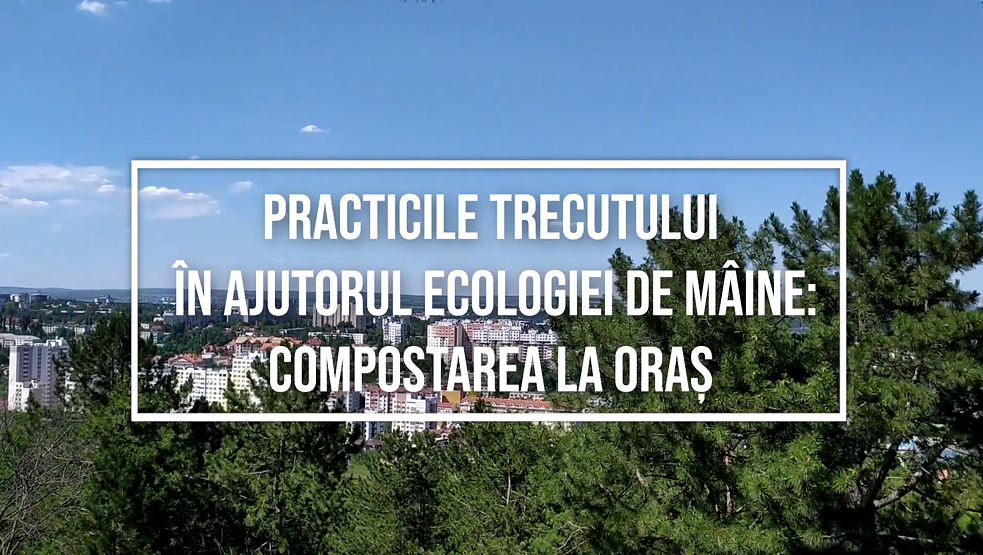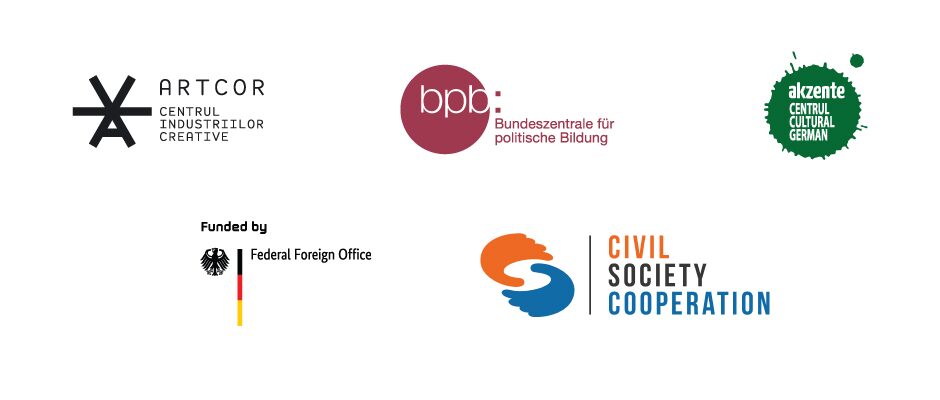Yesterday’s Practices to Help Tomorrow's Environment
This article was produced in the framework of the "Unprejudiced" project with the support of the Eastern Partnership Programme and the German Federal Foreign Office in January 2022.
Authors:
Carolina Buimestru
Anna Vasina
The Republic of Moldova and its inhabitants have kept their household habits closely linked to nature – they have what today we would call an eco-friendly approach. There are many techniques they use, yet in this article we would like to discuss only two of them. We shall discover the sorting technique implemented by the Soviets in the city of Bălți by means of the testimonies of journalist Mihail Mester. We will also reveal a technique originating in rural areas but adapted and practiced in a city apartment by Lilia Curchi, an environmental journalist living in Chișinău.

One of the techniques implemented in our country's Soviet past was the sorting of waste according to categories: wastepaper, metal, glass, household waste. This project, implemented at the level of the entire Soviet Union in the 1960s, encouraged the participation of all age groups, offering students and pupils (pioneers) goods and prizes at an institutional level. Grownups received monetary rewards in exchange for raw materials, sometimes book subscriptions or even days off, writes lenta.ru.
The journalist Mihail Mester, a native of Bălți, remembers a similar project taking place in the city, yet very vaguely. It was an attempt to sort waste by the entire population, but without any type of remuneration as it was the case with the regular collection points. In the absence of a well-developed infrastructure and virtually with no information being transmitted through the various communication channels, the initiative failed in less than a year, leaving no visible trace in the sustainable habits of the local population of Bălți, much less in the media outlets of the time. Mikhail suggests that the whole story of waste sorting migrated to the Union from the German Democratic Republic (1949-1990). This could indeed be possible, considering that at that time, a sorting system called SERO already existed there, according to the German source Amherst College Global Education.
According to the website bm.digital, this pilot project was conceived in Leningrad, and was meant to be implemented and tested in the small industrial city of Bălți, Moldova (then MSSR). The project was abandoned, but from what the journalist told us, this project left behind useful lessons on how to build a functioning system of separate waste collection nowadays. The failure was due to the fact that everything we call environmental policies today was seriously neglected for the sake of ideology and its manifestation attributes, concluded Mihail Mester.
Composting rediscovered in the city of Chișinău
A real technique of the past which is being used in the city is composting. Despite the necessary adaptations to the conditions of living in an apartment building, it is practiced by Lilia Curchi, an environmental journalist, and a resident of Chișinău. She has previously seen this technique at her parents' home in the countryside, where it has been passed from a generation to another. She considers composting a solution to reduce the amount of waste that ends up in the Țânțăreni dump. She has shown us how to separate kitchen waste, such as potato skins, onion, carrot, and banana peels.
She sprinkles a layer of Bokashi bran over the kitchen waste. "This Bokashi bran is processed by a substance that contains bacteria that helps with fermentation and I get it from my colleagues from the Ask a Worm initiative. Anyone can get it from them at the low price of thirty lei for a large quantity that will last for a long time", says the protagonist. To balance the humidity level, she layers indoor plant leaves and cardboard.
After filling the bucket, she seals it tightly and lets the waste ferment indoors for 2-4 weeks. "The longer the better, since once it has fermented for a longer time, it doesn't attract rodents anymore", Lilia adds.
Among the challenges faced by the protagonist when she started composting were the challenge of convincing family members to separate biodegradable waste from other waste, finding space for the compost bin, finding, and buying Bokashi bran. The greatest challenge is, nevertheless, what to do with all the waste that one collects and that is already fermenting. This is quite a challenge since the infrastructure is lacking. "There are a few compost bins scattered throughout the city and if you're not lucky enough to have one close to your house, you have to take a taxi, for example, or to find a way to get these scraps you've collected to the compost dump or compost bin", she explains. In the district she lives in there is a space that is quite close and that is looked after by the organization "Speranță și Sănătate" ("Hope and Health"). Yet Lilia admits that you have to take the time to get to them, to fit in with the office hours.
Despite all obstacles, Lilia Curchi urges all those who wish to do this and who love the environment to start composting, especially those who own a house and can set up their own compost bin. She urges people living in apartment buildings to start sorting their waste and, if convenient, to take it to the nearest compost bin in the area. Moreover, she urges local authorities to make composting easier for citizens by creating the necessary infrastructure. This is a solution to reduce the amount of waste that is collected in landfills and turn it into fertilizer for green spaces and gardens.
